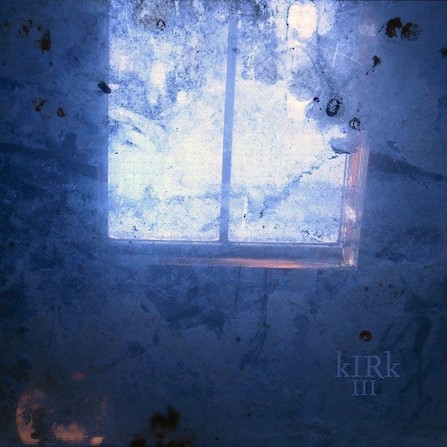"3. That’s the magic number."
De La Soul, 1988
It’s not just De La Soul who pointed out the magical properties of the number three. Esoteric and mainstream religions often demonstrate the potent propositions of combining three elements, from Arabic Alchemy’s three metallic principles of mercury, salt and sulphur, to the Christian Holy Trinity of the Father, the Son and the Holy Spirit. As if to emphasise the principle, Warsaw’s kIRk, (which translates as ‘Church’), release III – a third album by a trio whose unique, combined output is very much greater than the sum of its parts.
Their seemingly strict structure has been developing since 2009, when turntablist Filip Kalinowski and trumpeter Olgierd Dokalski first plugged into Paweł Bartnik’s electronics to combine free improvisation with dubwise studio techniques. Trying to describe the trio’s debut album, 2011’s Msza Święta w Brąswałdzie (tr. Holy Mass In The Town Of Braunswalde) it’s easy to get tied up in genres where Kalinowski’s hip-hop cuts and Dokalski’s jazz trumpet streak across Bartnik’s dubstep rhythms and industrial techno sound design to form an up-to-date urban fusion. As if to swerve the trappings of genre, and following the uncharacteristically clubbable single Pył, kIRk’s second album bore little trace of dubstep or tight, bob-able beats even. Suitably titled Bad Blood (Zła Krew), the trio’s individual roles had become more integrated, and, so, much more camouflaged – their pooled sounds and FX constantly morphing to produce cinematic, paranoid nightmares.
This, perhaps, perfectly positioned them to perform a live soundtrack to the modern, silent film adaptation of Lovecraft’s The Call Of Cthulhu; its mute, flickering, black and white images designed to reflect the production values at the time the cult tale of cosmic horror was written. But while the ‘musical sketches’ they prepared for this performance in August 2013 form the basis of III, the album, though certainly haunted, is without the harrowing anxieties that permeate Zła Krew, instead feeling rich and powerful, imbued with magical properties and a curious confidence that suggests a catharsis or restoration in the intervening period.
For a start, the beats are back – but instead of slotting their sound into a recognisable genre it simply and auspiciously commands a purposeful presence, a strong current on which their more wayward emanations can flow. The opening piece has majestic horns, burnt electronic chords and dizzying samples circling each other, like wolves hungrily honing in on their prey, before an unafraid, unfussed riddim strides stoically forward to straighten the head and strengthen the heart. It provides passage through the predatory patterns until cataclysmic dub FX smash its snares out of the forest, bringing the darker undercurrents once more into the foreground – a disorientating tactic used to great effect throughout III.
The first tracks’ wounded kick sluggishly segues into III‘s second as Dokalski’s trumpet this time leads us through another dread fusion. Here, and not for the first time, kIRk’s moody manoeuvres remind of ‘The First Five Minutes After Death’, Coil’s classic closer to their second album, sharing a cool, melancholic theme for solo horn over stark, heady manoeuvres.
The final and longest track is perhaps the boldest despite being the most subdued. Instead of a looped beat an antique grandfather clock ticks earnestly in an empty, reverberant space as small offerings from trumpet, turntable and the operatic voice of Antonina Nowacka are performed then extended through processing into the sonic equivalent of billowing net curtains. It slowly but evocatively builds into a haunted house, its ticking clock hypnotically leaving the listener in an uncertain dream state.
On III, by turning away from the external influence of genre, whether embracing its cues or rejecting its trappings, kIRk arrive at a powerful balance of improvisation and design wholly influenced by its three internal forces, that casts exquisite spells, both irie and eerie, upon its listeners.
III. That’s the magic number. Yes it is.
<div class="fb-comments" data-href="http://thequietus.com/articles/18253-kirk-iii-review” data-width="550">


